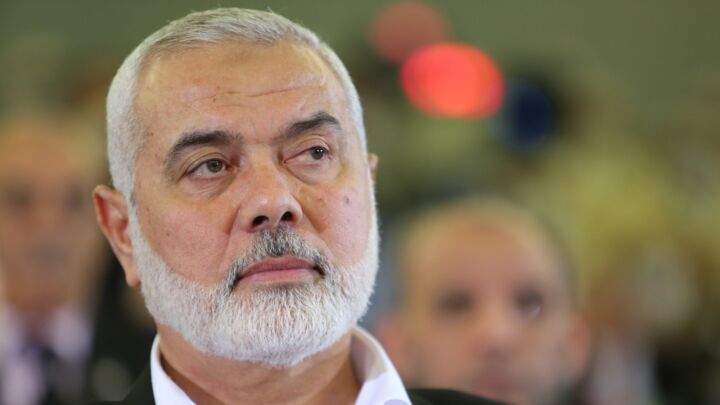The humiliation of Emmanuel Macron
The French parliament has taken back control from this authoritarian president.

The French National Assembly inflicted a rare yet embarrassing defeat on the French government on Monday, rejecting its proposed law on immigration by a vote of 270 to 265. The bill was aimed at expelling more undocumented migrants and improving integration. While the government thought it could count on the support of the right and the opposition of the left, both ends of French politics ended up joining forces to oppose the bill and deal a blow to embattled French president Emmanuel Macron.
The chamber erupted into celebration when it emerged that the government had lost the vote in a tight race. And with good reason. This wasn’t just a policy disagreement. This was a re-assertion of parliament’s authority at a time when the government – which has no parliamentary majority – is increasingly reliant on anti-democratic powers to force through its legislation.
The big loser of the day was Gérald Darmanin, the interior minister and presidential hopeful for 2027, who had personally promoted the bill. Darmanin left parliament and rushed to the Élysée Palace to hand in his resignation to President Macron – who promptly refused it. This was yet another power move by Darmanin, who reports to prime minister Élisabeth Borne and not directly to the president. By rushing to see Macron, he was trying to suggest that the PM is weak, and that the two men are the real power brokers in the country. Darmanin has since hinted that he is dropping any ambition to stand for president in 2027, but this should probably be taken with a pinch of salt.
Beyond the machinations of those in Macron’s party, this vote was a much-needed blast against the undemocratic antics of his government. When the vote took place, prime minister Borne had just invoked Article 49.3 for the twentieth time in 18 months. This is the French constitution’s highly controversial measure that allows the government to rush a bill through parliament without a debate and without a vote. Over the past few years, we have witnessed the most intense use of Article 49.3 in French history. While former Socialist prime minister Michel Rocard still holds the absolute record, with 28 invocations between 1988 and 1991, at the current rate, Borne is due to overtake him in 2024 – making her premiership the least democratic in the history of the Fifth Republic.
Macron’s rule has become increasingly authoritarian. He has never had much attachment to electoral politics. Indeed, he had never run for election prior to his election to the highest office in the land in 2017. And his antipathy towards parliament goes back further than that. Back in 2015, when he was a minister under François Hollande, his infamous ‘Macron Law’ on the economy was met with a rebellion from the left of the ruling Socialist Party. Prime minister Manuel Valls then had to use 49.3 to push it through parliament. Macron has never forgiven MPs for that humiliation early on in his political career and has taken every opportunity to bypass the representatives of the people since he was elected president.
This sidelining of MPs wasn’t necessary in his first term, as his surprise election precipitated a landslide victory in the parliamentary elections. Novice MPs from Macron’s newly created La République En Marche (LREM, now called Renaissance) rubber-stamped every bill without fail for the first five years. But his re-election in 2022 left Macron with no majority. Since then, his minority government has ruled France from the top down, imposing his will over the heads of parliament and the people. His government could have been defeated by a coalition of all the opposition parties, but since they range from the far right to the far left, they rarely agree with each other on policy and have so far failed to back any no-confidence motion.
Macron’s last hope has been the reluctance of the French conservative Les Républicains (LR) to bring down his government. Though they are in opposition, LR politicians believe that the power vacuum that would result from a no-confidence vote would not favour them electorally. Indeed, early elections could spell disaster for them. They shedded seats in 2022. Many traditional conservatives have already joined Macron – Darmanin himself was an LR member prior to joining Renaissance – or tried their luck with Marine Le Pen’s Rassemblement National (RN).
Meanwhile, RN has shown itself to be astute in outmanoeuvring Macron’s attempt to play both sides of the political aisle against one another. Members of the ruling party clearly thought RN would back their law on immigration. But it has consistently backed motions against the government, even on bills it is generally favourable towards, as it seeks to position itself ahead of the next presidential elections in 2027. A recent poll has shown that, for the first time ever, more French citizens believe RN could rule the country than those who don’t. Le Pen’s party is biding its time, waiting for its opponents to pile up mistakes.
Darmanin’s miscalculation over the immigration bill is a double victory for RN, as he was being lined up as the clear challenger to Le Pen for 2027. (Macron cannot serve a third term in office under the French constitution.) Darmanin the Sordid, as he is nicknamed, has made his reputation as the law-and-order candidate and was heir apparent to Macron until this week. With few differences between his policies and those advocated by RN, Darmanin’s plan was to position himself as the candidate of security in 2027 and hope to capture votes from RN that way. His downfall would greatly benefit Le Pen, removing a key opponent from the list of presidential hopefuls. Darmanin will need a major victory to come back from this recent humiliation.
The National Assembly’s rare assertion of its own power is a reason to rejoice, despite the short-term boon it hands to the unsavoury RN. It shows that the representatives of the people have real power. They have just shied away from exercising that power in recent years. Whether it was his pensions reforms or his crackdown on the gilets jaunes, Emmanuel Macron has bypassed elected officials time and again to push forward his authoritarian agenda. An assertive parliament is best placed to stop him in his tracks.
Charles Devellennes is a senior lecturer in political and social thought at the University of Kent and author of The Gilets Jaunes and the New Social Contract, published by Bristol University Press.
Picture by: Getty.
To enquire about republishing spiked’s content, a right to reply or to request a correction, please contact the managing editor, Viv Regan.







Comments
Want to join the conversation?
Only spiked supporters and patrons, who donate regularly to us, can comment on our articles.